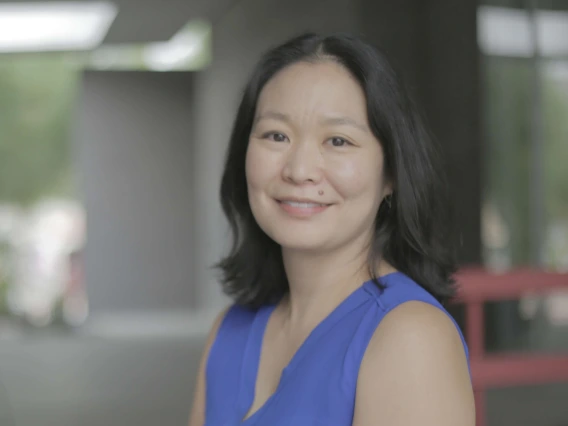
Arum Park, Associate Professor of Classics, has been awarded a faculty seed grant from the Office for Research, Innovation & Impact.
The $14,990 grant will support Park’s project, “Exploring the Intersection of Classics and Asia,” which fundamentally challenges the white, Eurocentric view of Classics that has predominated the discipline.
“This is in response to a more traditional way of thinking about classics, that modernity and antiquity are totally separate,” Park said. “This project is part of a movement among classicists to think about how our current realities help illuminate antiquity. This is counter to what people have done in linking antiquity and modernity, thinking of antiquity as a way to understand modernity, but not the other way around.”
By focusing on teaching and research related to the intersection of Classics and Asia, Park seeks to dismantle the disciplinary boundaries that have historically excluded marginalized populations from Classics, in turn increasing the diversity of Classics scholars and promoting a more expansive and inclusive view of scholarly inquiry.
“This project will empower classicists to think about how modern concepts like race and racial justice are integral to the study of antiquity,” said Park, who is also co-chair of the Asian and Asian American Classical Caucus.
Park said the project aims to prompt classicists to grapple with and acknowledge that the discipline’s historical focus on ancient Greece and Rome has both caused and been caused by an artificially narrow focus on certain areas of Mediterranean antiquity, resulting in epistemic and social harm to the field and its practitioners.
“To think that there is some impartial view of antiquity that was derived without modern critcal tools is wrongheaded. We've always been applying modern tools to our study of antiquity,” she said.
The project coincides with the launch of “Classics and Asia at the Intersections,” a new book series co-edited by Park and under contract with the University of Michigan Press.
The project will create opportunities for undergraduate research in a new and burgeoning intersectional area of research, support a public speaker series in Fall 2025 focused on diverse and inclusive research, and provide for conference travel and a developmental editor.
“What I’m hopeful for is not just expanding my own knowledge or understanding of this research area, but growing the collective knowledge, of the department, of the field, of anyone who chooses to attend the speaker series,” Park said.

